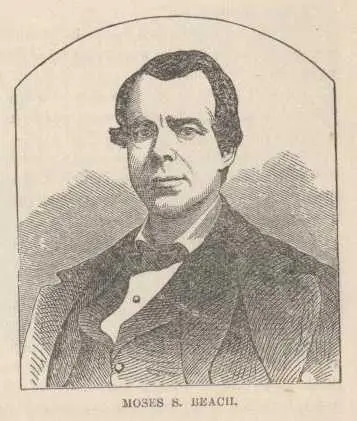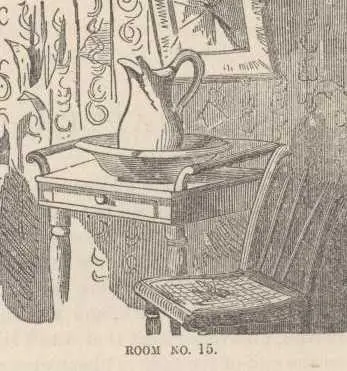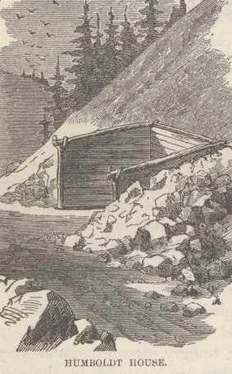Mark Twain - The Innocents Abroad
Здесь есть возможность читать онлайн «Mark Twain - The Innocents Abroad» весь текст электронной книги совершенно бесплатно (целиком полную версию без сокращений). В некоторых случаях можно слушать аудио, скачать через торрент в формате fb2 и присутствует краткое содержание. Год выпуска: 2004, Жанр: Классическая проза, Юмористическая проза, на английском языке. Описание произведения, (предисловие) а так же отзывы посетителей доступны на портале библиотеки ЛибКат.
- Название:The Innocents Abroad
- Автор:
- Жанр:
- Год:2004
- ISBN:нет данных
- Рейтинг книги:5 / 5. Голосов: 1
-
Избранное:Добавить в избранное
- Отзывы:
-
Ваша оценка:
- 100
- 1
- 2
- 3
- 4
- 5
The Innocents Abroad: краткое содержание, описание и аннотация
Предлагаем к чтению аннотацию, описание, краткое содержание или предисловие (зависит от того, что написал сам автор книги «The Innocents Abroad»). Если вы не нашли необходимую информацию о книге — напишите в комментариях, мы постараемся отыскать её.
The Innocents Abroad — читать онлайн бесплатно полную книгу (весь текст) целиком
Ниже представлен текст книги, разбитый по страницам. Система сохранения места последней прочитанной страницы, позволяет с удобством читать онлайн бесплатно книгу «The Innocents Abroad», без необходимости каждый раз заново искать на чём Вы остановились. Поставьте закладку, и сможете в любой момент перейти на страницу, на которой закончили чтение.
Интервал:
Закладка:
*It was an unselfish act of benevolence; it was done without any ostentation, and has never been mentioned in any newspaper, I think. Therefore it is refreshing to learn now, several months after the above narrative was written, that another man received all the credit of this rescue of the colonists. Such is life.

Alexandria was too much like a European city to be novel, and we soon tired of it. We took the cars and came up here to ancient Cairo, which is an Oriental city and of the completest pattern. There is little about it to disabuse one's mind of the error if he should take it into his head that he was in the heart of Arabia. Stately camels and dromedaries, swarthy Egyptians, and likewise Turks and black Ethiopians, turbaned, sashed, and blazing in a rich variety of Oriental costumes of all shades of flashy colors, are what one sees on every hand crowding the narrow streets and the honeycombed bazaars. We are stopping at Shepherd's Hotel, which is the worst on earth except the one I stopped at once in a small town in the United States. It is pleasant to read this sketch in my note-book, now, and know that I can stand Shepherd's Hotel, sure, because I have been in one just like it in America and survived:
I stopped at the Benton House. It used to be a good hotel, but that proves nothing—I used to be a good boy, for that matter. Both of us have lost character of late years. The Benton is not a good hotel. The Benton lacks a very great deal of being a good hotel. Perdition is full of better hotels than the Benton.
It was late at night when I got there, and I told the clerk I would like plenty of lights, because I wanted to read an hour or two. When I reached No. 15 with the porter (we came along a dim hall that was clad in ancient carpeting, faded, worn out in many places, and patched with old scraps of oil cloth—a hall that sank under one's feet, and creaked dismally to every footstep,) he struck a light—two inches of sallow, sorrowful, consumptive tallow candle, that burned blue, and sputtered, and got discouraged and went out. The porter lit it again, and I asked if that was all the light the clerk sent. He said, "Oh no, I've got another one here," and he produced another couple of inches of tallow candle. I said, "Light them both —I'll have to have one to see the other by." He did it, but the result was drearier than darkness itself. He was a cheery, accommodating rascal. He said he would go "somewheres" and steal a lamp. I abetted and encouraged him in his criminal design. I heard the landlord get after him in the hall ten minutes afterward.
"Where are you going with that lamp?"
"Fifteen wants it, sir."
"Fifteen! why he's got a double lot of candles—does the man want to illuminate the house?—does he want to get up a torch-light procession?—what is he up to, any how?"
"He don't like them candles—says he wants a lamp."
"Why what in the nation does——why I never heard of such a thing? What on earth can he want with that lamp?"
"Well, he only wants to read—that's what he says."
"Wants to read, does he?—ain't satisfied with a thousand candles, but has to have a lamp!—I do wonder what the devil that fellow wants that lamp for? Take him another candle, and then if——"
"But he wants the lamp—says he'll burn the d—d old house down if he don't get a lamp!" (a remark which I never made.)
"I'd like to see him at it once. Well, you take it along—but I swear it beats my time, though—and see if you can't find out what in the very nation he wants with that lamp."
And he went off growling to himself and still wondering and wondering over the unaccountable conduct of No. 15. The lamp was a good one, but it revealed some disagreeable things—a bed in the suburbs of a desert of room—a bed that had hills and valleys in it, and you'd have to accommodate your body to the impression left in it by the man that slept there last, before you could lie comfortably; a carpet that had seen better days; a melancholy washstand in a remote corner, and a dejected pitcher on it sorrowing over a broken nose; a looking-glass split across the centre, which chopped your head off at the chin and made you look like some dreadful unfinished monster or other; the paper peeling in shreds from the walls.
I sighed and said: "This is charming; and now don't you think you could get me something to read?"
The porter said, "Oh, certainly; the old man's got dead loads of books;" and he was gone before I could tell him what sort of literature I would rather have. And yet his countenance expressed the utmost confidence in his ability to execute the commission with credit to himself. The old man made a descent on him.
"What are you going to do with that pile of books?"
"Fifteen wants 'em, sir."
"Fifteen, is it? He'll want a warming-pan, next—he'll want a nurse! Take him every thing there is in the house—take him the bar-keeper—take him the baggage-wagon—take him a chamber-maid! Confound me, I never saw any thing like it. What did he say he wants with those books?"
"Wants to read 'em, like enough; it ain't likely he wants to eat 'em, I don't reckon."
"Wants to read 'em—wants to read 'em this time of night, the infernal lunatic! Well, he can't have them."
"But he says he's mor'ly bound to have 'em; he says he'll just go a-rairin' and a-chargin' through this house and raise more—well, there's no tellin' what he won't do if he don't get 'em; because he's drunk and crazy and desperate, and nothing'll soothe him down but them cussed books." [I had not made any threats, and was not in the condition ascribed to me by the porter.]
"Well, go on; but I will be around when he goes to rairing and charging, and the first rair he makes I'll make him rair out of the window." And then the old gentleman went off, growling as before.
The genius of that porter was something wonderful. He put an armful of books on the bed and said "Good night" as confidently as if he knew perfectly well that those books were exactly my style of reading matter. And well he might. His selection covered the whole range of legitimate literature. It comprised "The Great Consummation," by Rev. Dr. Cummings—theology; "Revised Statutes of the State of Missouri"—law; "The Complete Horse-Doctor"—medicine; "The Toilers of the Sea," by Victor Hugo—romance; "The works of William Shakspeare"—poetry. I shall never cease to admire the tact and the intelligence of that gifted porter.

But all the donkeys in Christendom, and most of the Egyptian boys, I think, are at the door, and there is some noise going on, not to put it in stronger language.—We are about starting to the illustrious Pyramids of Egypt, and the donkeys for the voyage are under inspection. I will go and select one before the choice animals are all taken.
CHAPTER LVIII.
"Recherche" Donkeys—A Wild Ride—Specimens of Egyptian Modesty—Moses in the Bulrushes—Place where the Holy Family Sojourned—Distant view of the Pyramids—A Nearer View—The Ascent—Superb View from the top of the Pyramid—"Backsheesh! Backsheesh!"—An Arab Exploit—In the Bowels of the Pyramid—Strategy—Reminiscence of "Holiday's Hill"—Boyish Exploit—The Majestic Sphynx—Things the Author will not Tell—Grand Old Egypt
The donkeys were all good, all handsome, all strong and in good condition, all fast and all willing to prove it. They were the best we had found any where, and the most 'recherche'. I do not know what 'recherche' is, but that is what these donkeys were, anyhow. Some were of a soft mouse-color, and the others were white, black, and vari-colored. Some were close-shaven, all over, except that a tuft like a paint-brush was left on the end of the tail. Others were so shaven in fanciful landscape garden patterns, as to mark their bodies with curving lines, which were bounded on one side by hair and on the other by the close plush left by the shears. They had all been newly barbered, and were exceedingly stylish. Several of the white ones were barred like zebras with rainbow stripes of blue and red and yellow paint. These were indescribably gorgeous. Dan and Jack selected from this lot because they brought back Italian reminiscences of the "old masters." The saddles were the high, stuffy, frog-shaped things we had known in Ephesus and Smyrna. The donkey-boys were lively young Egyptian rascals who could follow a donkey and keep him in a canter half a day without tiring. We had plenty of spectators when we mounted, for the hotel was full of English people bound overland to India and officers getting ready for the African campaign against the Abyssinian King Theodorus. We were not a very large party, but as we charged through the streets of the great metropolis, we made noise for five hundred, and displayed activity and created excitement in proportion. Nobody can steer a donkey, and some collided with camels, dervishes, effendis, asses, beggars and every thing else that offered to the donkeys a reasonable chance for a collision. When we turned into the broad avenue that leads out of the city toward Old Cairo, there was plenty of room. The walls of stately date-palms that fenced the gardens and bordered the way, threw their shadows down and made the air cool and bracing. We rose to the spirit of the time and the race became a wild rout, a stampede, a terrific panic. I wish to live to enjoy it again.
Читать дальшеИнтервал:
Закладка:
Похожие книги на «The Innocents Abroad»
Представляем Вашему вниманию похожие книги на «The Innocents Abroad» списком для выбора. Мы отобрали схожую по названию и смыслу литературу в надежде предоставить читателям больше вариантов отыскать новые, интересные, ещё непрочитанные произведения.
Обсуждение, отзывы о книге «The Innocents Abroad» и просто собственные мнения читателей. Оставьте ваши комментарии, напишите, что Вы думаете о произведении, его смысле или главных героях. Укажите что конкретно понравилось, а что нет, и почему Вы так считаете.












